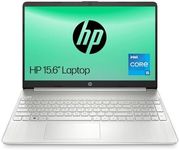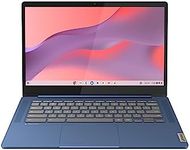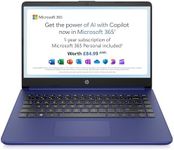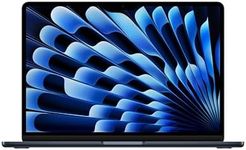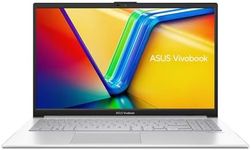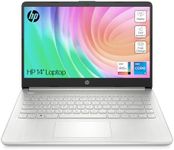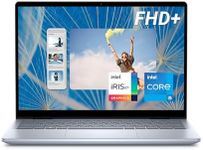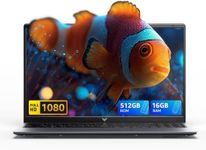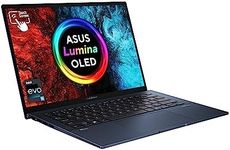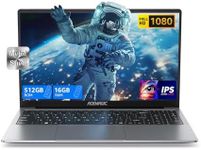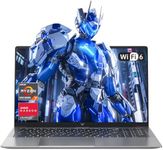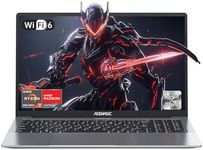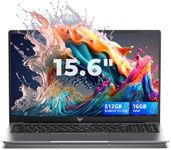Buying Guide for the Best Laptop For Teens
Choosing a laptop for a teenager involves considering their specific needs, such as schoolwork, entertainment, and hobbies. It's important to find a balance between performance, portability, and durability. Teenagers often use laptops for a variety of tasks, including browsing the internet, streaming videos, playing games, and completing school assignments. Therefore, selecting a laptop that can handle these activities efficiently is crucial. Additionally, consider the laptop's design and features that might appeal to a teenager's personal style and preferences.Processor (CPU)The processor, or CPU, is the brain of the laptop and determines how fast and efficiently it can perform tasks. For teenagers, a mid-range processor is usually sufficient, as it can handle everyday tasks like web browsing, streaming, and schoolwork. Processors are often categorized into entry-level, mid-range, and high-end. Entry-level processors are suitable for basic tasks, while mid-range processors offer a good balance of performance and cost. High-end processors are more suited for demanding tasks like gaming or video editing. Consider what your teen will primarily use the laptop for to choose the right processor.
RAMRAM, or Random Access Memory, is crucial for multitasking and running applications smoothly. More RAM allows a laptop to handle more tasks at once without slowing down. For teenagers, 8GB of RAM is generally a good starting point, as it provides enough memory for most applications and multitasking needs. If your teen plans to use the laptop for more intensive tasks like gaming or video editing, consider opting for 16GB of RAM. However, for basic use, 4GB might suffice, but it could limit the laptop's ability to handle multiple applications simultaneously.
StorageStorage determines how much data, such as files, applications, and media, the laptop can hold. There are two main types of storage: HDD (Hard Disk Drive) and SSD (Solid State Drive). SSDs are faster and more reliable but tend to be more expensive. For teenagers, a laptop with at least 256GB of SSD storage is recommended, as it offers a good balance between speed and capacity. If your teen stores a lot of media files or games, consider a larger SSD or a combination of SSD and HDD for additional storage space.
Graphics Card (GPU)The graphics card, or GPU, is responsible for rendering images and videos. For general use, an integrated GPU, which is built into the processor, is usually sufficient. However, if your teen is interested in gaming or graphic design, a dedicated GPU might be necessary for better performance. GPUs are categorized into entry-level, mid-range, and high-end. Entry-level GPUs are suitable for basic tasks, while mid-range and high-end GPUs are better for gaming and creative work. Consider your teen's interests and activities when choosing the right GPU.
DisplayThe display is an important aspect of a laptop, as it affects the viewing experience. Key factors to consider include size, resolution, and panel type. A 13 to 15-inch display is typically a good size for portability and usability. Resolution affects the clarity of the screen, with Full HD (1920x1080) being a common and suitable choice for most users. Higher resolutions like 4K offer better clarity but are more expensive. Panel types, such as IPS, provide better color accuracy and viewing angles. Consider what your teen will use the laptop for and how important display quality is to them.
Battery LifeBattery life is crucial for teenagers who may use their laptops on the go, such as at school or during travel. A longer battery life means less frequent charging and more convenience. Laptops with a battery life of 8 hours or more are generally considered good for all-day use. However, actual battery life can vary based on usage and settings. If your teen will be using the laptop primarily at home, battery life may be less of a concern. Consider their daily routine and how often they will need to use the laptop away from a power source.
PortabilityPortability is an important factor for teenagers who may need to carry their laptops to school or other places. This is influenced by the laptop's size, weight, and design. Lighter and more compact laptops are easier to carry around, making them ideal for students. A laptop weighing around 3 to 4 pounds is generally considered portable. However, smaller laptops may have smaller screens and keyboards, which could affect usability. Consider how often your teen will need to transport the laptop and balance portability with other features like screen size and performance.
DurabilityDurability is important for a laptop that will be used by a teenager, as it needs to withstand daily wear and tear. Look for laptops with sturdy build quality and materials, such as metal or reinforced plastic. Some laptops are designed to be more rugged and can withstand drops or spills, which might be beneficial for younger teens. Consider the environment in which the laptop will be used and whether additional durability features are necessary. A durable laptop can provide peace of mind and potentially save on repair costs in the long run.

